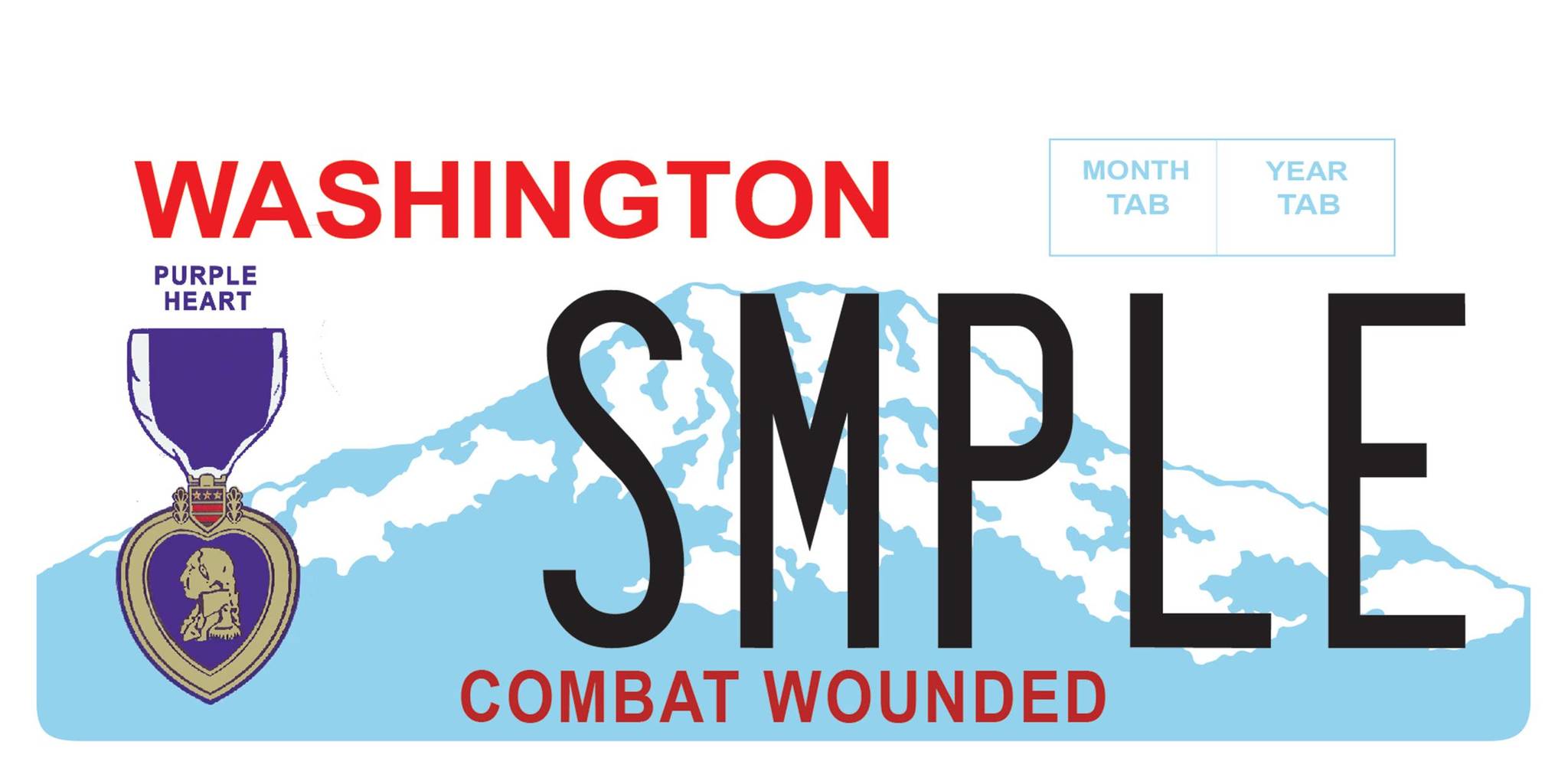Purple Heart license plates will now be issued without payment of any fees or taxes for one motor vehicle, effective on July 28, 2019.
Any resident of Washington State who has been awarded a Purple Heart medal by any branch of the United States armed forces may apply for the special license plate. The legislation includes merchant marines and the women’s air force service pilots.
House Bill 2058 was co-sponsored by a bipartisan group of 14 representatives and introduced by Rep. Lisa Callan, D-Issaquah, during the 2019 Washington State legislative session. The measure was passed by the House and Senate unanimously. Gov. Jay Inslee signed the bill on April 24, 2019.
“The purple heart medal is given to those who have been wounded or killed in combat or by an international act of terrorism — one that no one wants to receive,” Callan said during a House floor debate on March 13.
Any applicant for the Purple Heart license plate is required to be a resident of the state and must have been wounded during one of the nation’s wars or conflicts identified in RCW 41.04.005. Recipients of the plates need to have been honorably discharged from the United States armed forces, according to HB 2058.
In order to receive the specialized license plates, veterans need to provide a copy of the armed forces document showing proof of being awarded the Purple Heart metal. Lastly, applicants must be recorded as the registered owner of a motor vehicle on which the Purple Heart license or plates will be displayed.
“I believe Washington’s Purple Heart recipients deserve more than just a ‘thank you’ for their dedication, their service and their tremendous sacrifice,” Callan said. The idea for the bill was brought to her by North Bend resident Jim Curtis, a veteran of the Vietnam war.
Curtis served in Vietnam in 1969 and part of 1970 before being wounded by mortar fire and exposure to Agent Orange. He lives today with significant health issues as a result of that subjection to harmful chemicals.
“I love the Purple Heart plate because it connects me with other combat veterans,” Curtis said. “It’s a way to connect and help each other.”
Curtis still suffers from post-traumatic stress disorder, diabetes and Parkinson’s disease. The license plate creates relationships with other veterans and makes the illnesses easier to manage, he explained.


